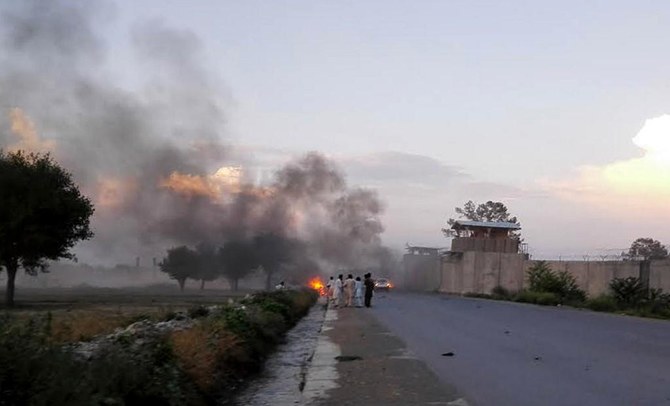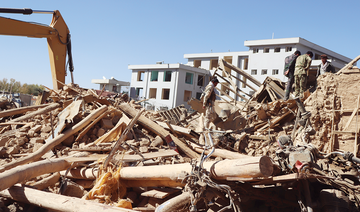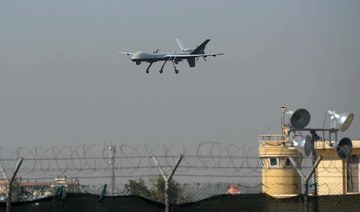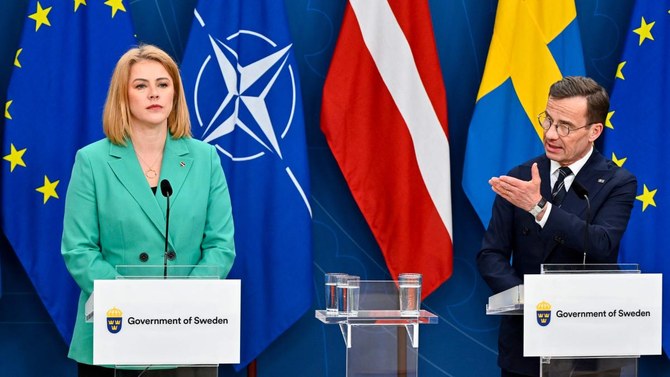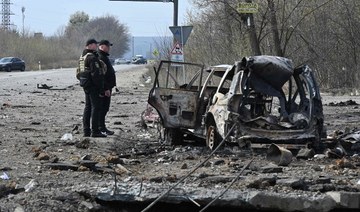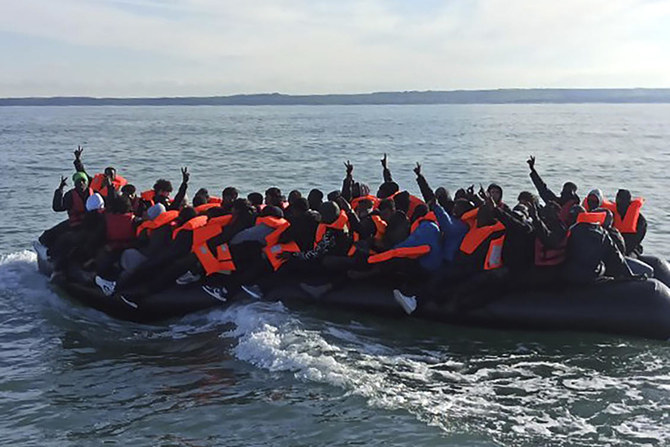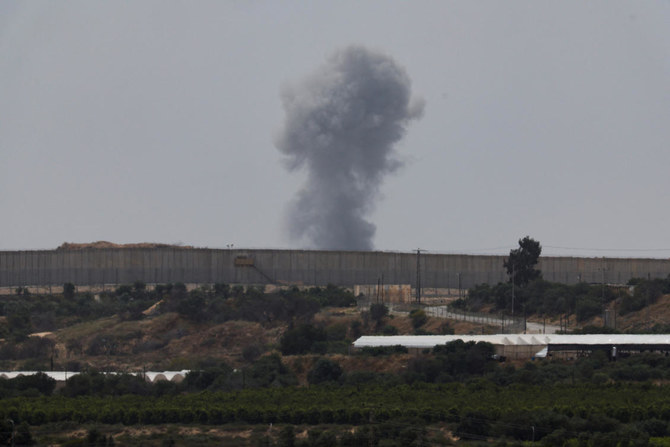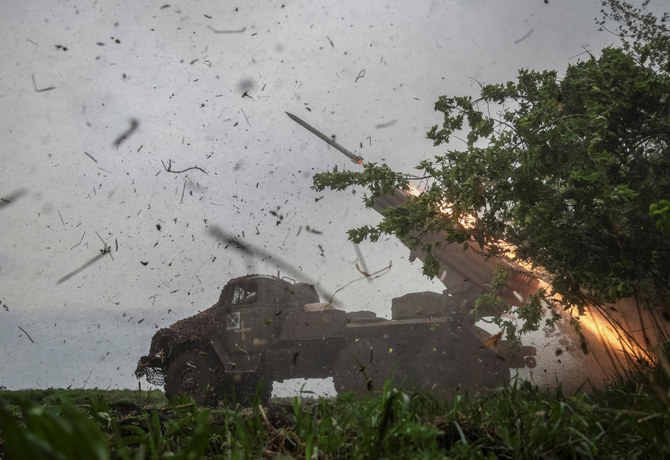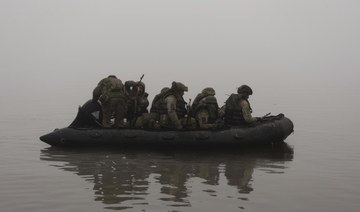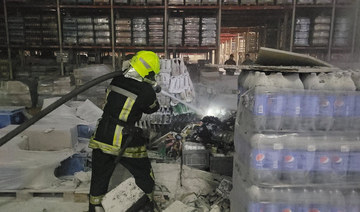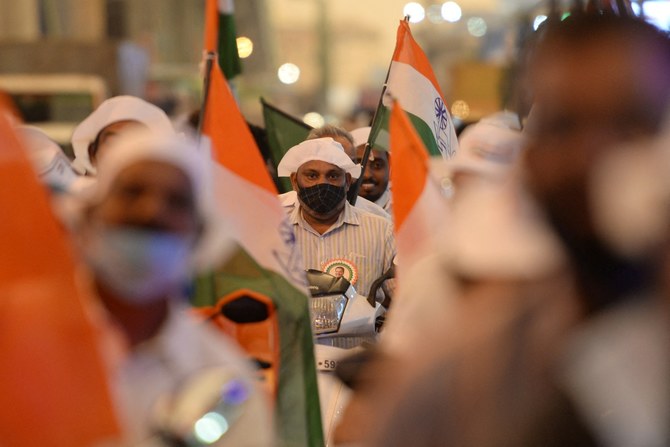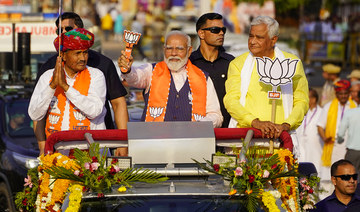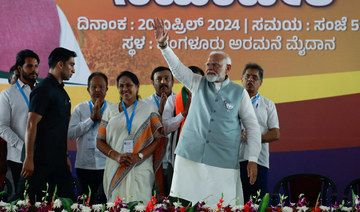KABUL: Six people were killed and more than 30 injured after unidentified gunmen attacked a compound housing a special police force unit in Afghanistan’s southeastern Khost province on Tuesday, officials told Arab News.
“Two police officers lost their lives in the car bomb, and there are some other fatalities too, apart from the death of four attackers,” Talib Mangal, a spokesman for Khost’s governor told Arab News.
He added that the toll is “highly likely” to go up.
The attack in Khost’s provincial capital, Khost city, which lies 233 km from Kabul, began at 6 a.m. with a massive car bombing.
The attack is the latest in a series of strikes across the country since the crucial intra-Afghan peace talks began in Qatar more than a month ago.
It triggered hours of fighting between the assailants and the police, who were prevented from entering the complex.
“The gunmen failed to enter the police compound,” Tariq Aryan, Interior Ministry spokesman in Kabul, told Arab News.
No group has claimed responsibility for the attack.
Officials, however, suspect the Taliban organized the strike.
The Taliban have remained silent over several strikes across the country in recent weeks, but claimed responsibility for a major onslaught in the southern Helmand province which began on Oct. 11.
Last week, the group’s Qatar-based spokesman, Dr. Naeem Wardak, confirmed to a local news channel that the insurgents had launched an offensive in Helmand where civilians continue to bear the brunt of the violence.
Scores have died in fighting between the government forces and militants, including in attacks conducted by Daesh as well.
Daesh said that “nearly 25 people were killed and more than 50 injured” in a strike on a Shia populated area in the Khorasan province of Kabul on Saturday, claiming responsibility for the incident.
On Tuesday, the UN expressed concern over an escalation in violence, loss of civilian life and the continued displacement of people from the worst-affected areas
of Helmand.
“The peace talks need some time to help deliver peace. But all parties can immediately prioritize discussions and take urgent and frankly overdue, additional steps to stem the terrible harm to civilians,” Deborah Lyons, the UN’s special envoy for Afghanistan, said.
Earlier on Monday, the world body said that the security situation in Helmand “remains volatile,” describing the Taliban attacks on at least 15 health facilities in the past two weeks as “worrying.”
The Taliban have also taken over several government posts near Lashkar Gah — Helmand’s provincial capital — as part of their offensive, Dr. Wardak said last week.
On Monday, Afghanistan’s government said it had dispatched additional troops to “regain the lost land” from the insurgent group in the area.
“Last night, a large number of joint special forces arrived in Helmand ... they are supposed to defend from the lives and properties of people against Taliban’s attacks,” the Defense Ministry said.
It follows the government’s move on Sunday to form a special combat force, comprising 1,000 locals from Helmand, to fight the Taliban because “they know the terrain better.”
More than 35,000 people have been displaced since fighting in Helmand erupted on Oct. 11. The region is part of the Taliban’s bastion and one of the most volatile parts of Afghanistan.
Analysts, however, believe that with the uptick in violence and lack of progress in the Doha talks, the Taliban were “building pressure” on the government on the battlefield to weaken their stance ahead of the expected departure of US troops from the country, with plans to “eventually re-capture power by force.”
Others argue that Kabul is using “various unsuccessful methods to prevent more areas from being captured by the Taliban.”
Retired general Attiqullah Amarkhail told Arab News: “The formation of the locally raised force in Helmand can be a good example of the desperate efforts by the government. If regular forces cannot protect an area, how can you expect local militias to do so?
“This creates corruption and more instability rather than aiding security.”



